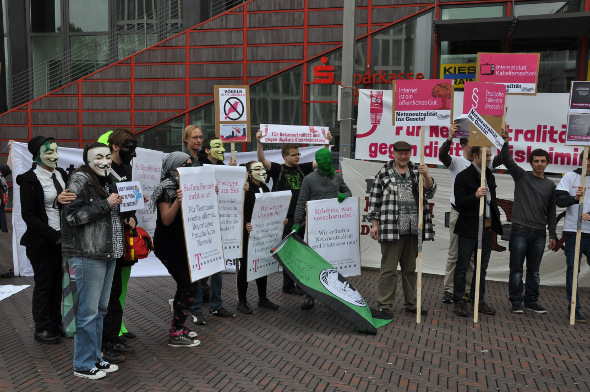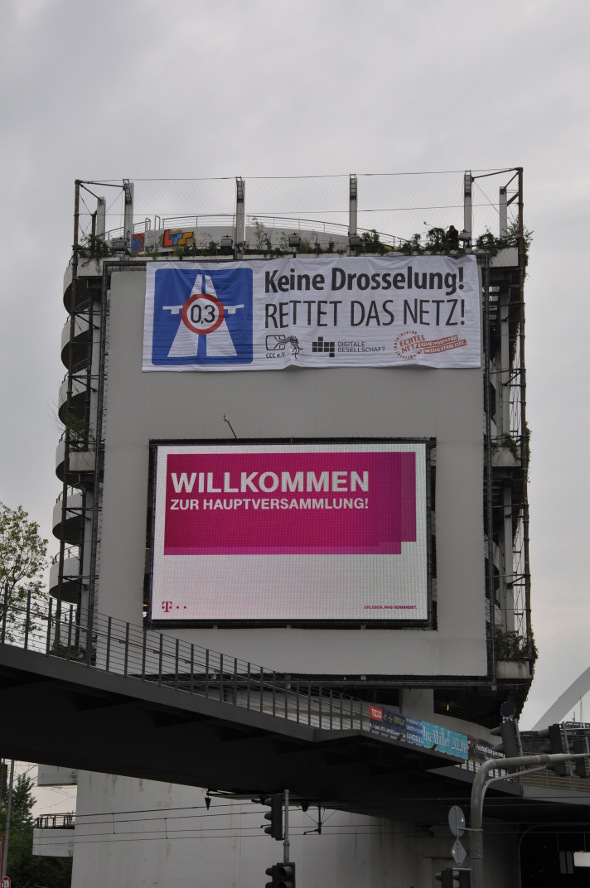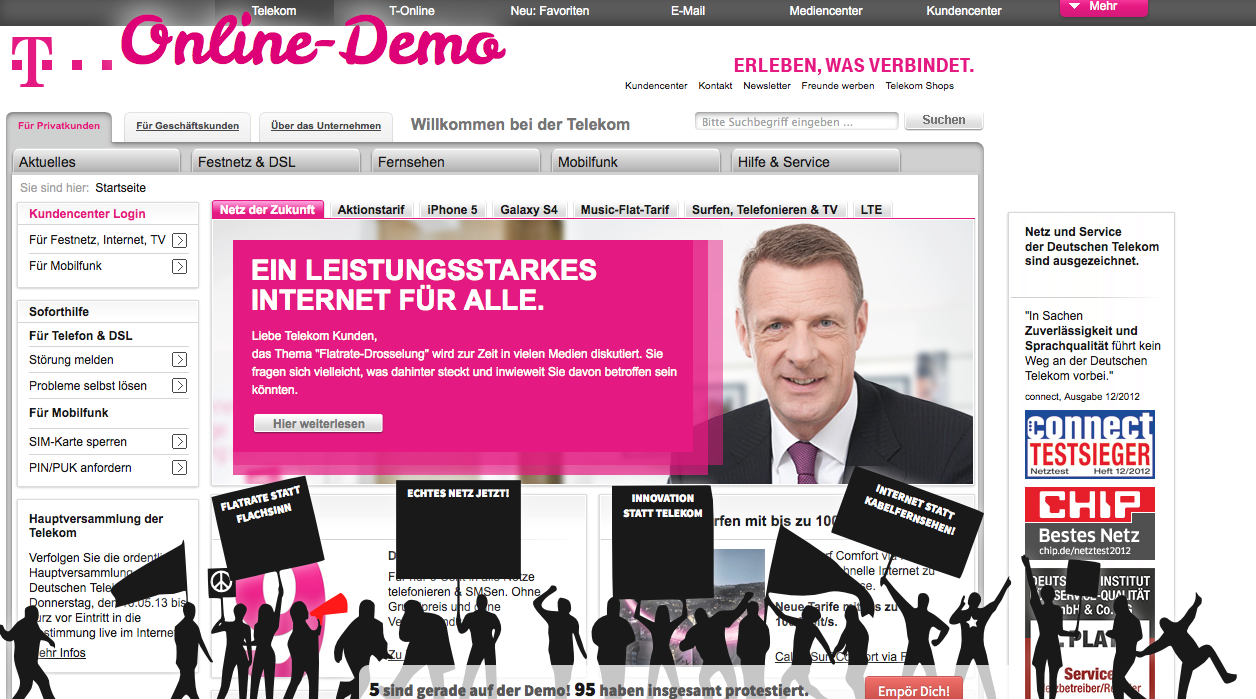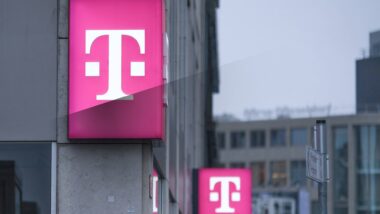
Internet activists in Germany demand a free and open Internet today, protesting in front of the annual general meeting of major German ISP Deutsche Telekom. They criticize the companies plans to slow down internet connections after a certain amount of traffic has been used. What is worse: the company is violating the principle of net neutrality – internet services can buy their way out of those limits.
Three weeks ago, the former state-owned monopoly telecommunications company Deutsche Telekom AG announced plans to enforce traffic limits on their DSL customers. After transferring a certain amount of data, like 75 gigabytes a month, DSL-connections will be slowed down to 384 Kbit/s instead of the original 16 Mbit/s. Imagine a car usually driving 50 km/h, but after driving for 1.000 km it is slowed down to 384 meters per hour – it’s functionality is broken.

Making matters even worse, Telekom also openly announced, that internet companies can pay them to be excluded from those customer limits. This is already being done with the music streaming service Spotify: their traffic will not be counted for the customer limit – and Spotify will remain available at full speed even when its competitors are slowed down. The market leader is trying to kill the principle of net neutrality – that all bits are created equal.
Needless to say, this has created quite a stir in German media and among net activists. Together with many others, internet activist group Digitale Gesellschaft worked on stopping Telekoms plans and advocating for net neutrality. Active for two years already, the campaign site EchtesNetz.de explains the concept of net neutrality and provides simple explanations on why it is essential for a free and open internet.
When the plans were announced, activists shifted into full-fledged campaign mode:

- Drossl.de calculates, that with the new rules, DSL-connections only work for a few hours a month with their advertised speed – and fall back to the digital stone age for the rest of the month. It also provides a video, showing that Telekoms own website takes almost two minutes to fully load with the slow speed.
- Two videos take Telekom TV commercials – and adjust them to the new reality.
- Hilf-Telekom.de („help Telekom“) allows web users to create their own posters for Telekom advertising – activists have created over 4.000 remixes with fun and wit.
- A song took up the meme „broken functionality“ and ended up on iTunes charts – with all revenue donated to Digitale Gesellschaft.
- A poster campaign visualized that a working internet connection is an essential part of modern life and must not be taken away.
Highlight however are todays protests at the annual general meeting of Telekom in the German town of Cologne. Since early in the morning, an assembly of activists has been protesting in front of the shareholder meeting. One highlight was showing a massive 13,5 × 4,5m banner right above Telekoms welcome banner – a cooperation of Digitale Gesellschaft and Chaos Computer Club.

At the moment, a protest march through the city is starting. Simultaneously, an online demonstration „occupying“ Telekoms website is also taking place.
Until three weeks ago, activists struggled to explain the abstract concept of net neutrality to the public. With unexpected support from the major ex-state ISP, the concept is now known to more people than ever. The free and open internet is in danger and Telekom must not succeed with their plans. Other countries like the Netherlands, Chile, Slovenia, Argentina, Colombia, Brazil and Mexico have understood this – and passed laws enforcing a neutral net. Although the EU commission has acknowledges its importance, it has failed to adequately regulate it. If the EU doesn’t do it, it is time for individual Member States to enshrine net neutrality into law.
Protect the free and open internet – enforce net neutrality!




Die sollen bitte aufhören Netzneutralität und Volumentarife in einen Topf zu werfen. Das völlig verschiedene Dinge. Für die Erhaltung (Verhinderung der Einführung der „managed services“) bzw. Schaffung der Netzneutralität ( Abschaffung von „Entertain“ als priviligierten Datenstrom und verankerung der Netzneutralität als Gesetz) sollten sich alle Bürger einsetzen/demonstrieren, z.B. durch Strassenprotest. Gegen die sogenannte „Drosselung“ bei der Telekom sollte die Kunden protestieren, z.B. durch Kündigung.
Ja, leider versucht die Telekom die Abschafung der Netzneutralität hinter der Preisdebatte zu verstecken.
Ginge es nur um die Preise würde eine Einführung von „echten“ Volumen Tarifen mit Abrechnung des Volumens und anschliessender Bezahlung ohne Drosselung vollkommen ausreichend.
Die Drosselung ist aber notwendig für die Einführung von Managed Services, da derzeit das „best effort“-Netz ja noch nicht zu entsprechenden Unbequemlichkeiten führt.
Actually, 384 m/s are above sonic speed. Maybe you want to change the example.
It’s per hour, of course. Fixed.
I’m a Spotify customer, and I’ve raised this issue on their Ideas forum:
duncan_bayne
Stop paying German telecom Drosselkom to violate net neutrality.
If you’re a Spotify user, please give the idea Kudos to raise the profile of this issue in the user community!